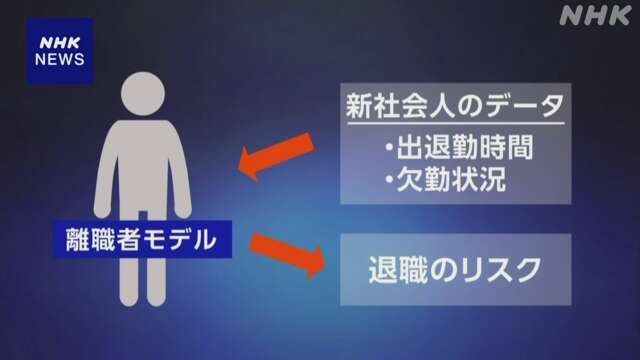TOKYO, Apr 19 (NHK) - Japanese businesses are facing a growing problem of new recruits who quit shortly after they join their companies in April, which is at the start of a new business year.

To address the problem, Professor Shiratori Naruhiko of the Tokyo City University and a start-up firm have jointly developed an artificial intelligence tool to predict what kinds of new employees could resign.
The AI tool is based on a study about the AI prediction of characteristics of university students who will likely drop out and measures to prevent their departures.
The newly-developed AI is fed with data on attendance records of all employees at a company, genders, characteristics and personnel affairs, as well as data on employees who left the company or took an extended leave of absence.
Then, the AI tool creates a turnover model for each company.
The AI tool also predicts who has a risk of quitting and quantifies the risk if attendance data on new recruits are input.
The developers plan to upgrade the AI so that it can predict appropriate assignments of jobs for new employees by adding information from job interviews, characteristics and personal histories about them.
Shiratori said that AI's strength is that it is based on objective data not on subjective views of people working in human resources.
He said that it will help find employees who are discontent with their bosses or positions, and suggest providing intensive care for them.
Shiratori added that the AI tool can determine the turnover risk, but it is only humans that can analyze the risks behind the data and their causes, and then take measures to address them.















